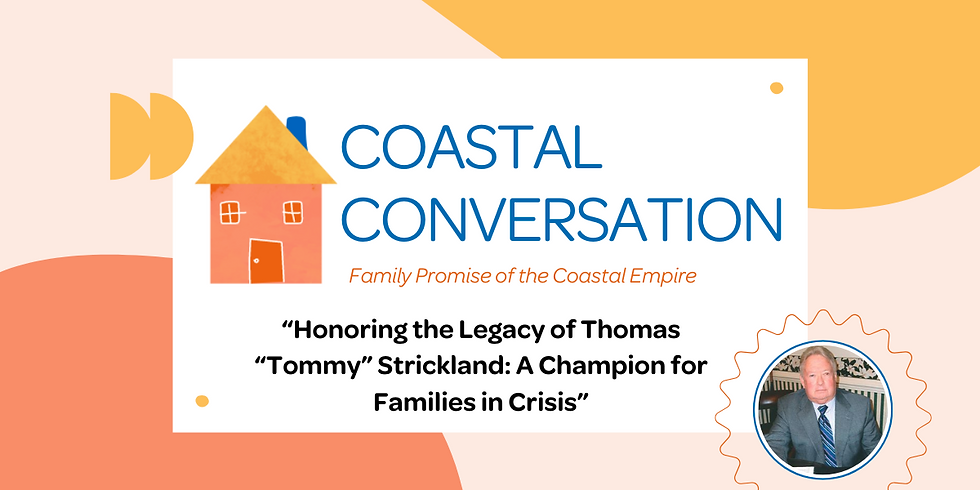The Unintended Consequences: When Housing Policy Hurts
- fpcoastalempire

- May 22, 2024
- 3 min read

Housing policy is intended to address communities' pressing needs, ensuring access to safe, stable, and affordable housing for all. However, well-intentioned policies can sometimes have unintended consequences that exacerbate inequality, displacement, and housing insecurity. In this blog, we'll explore instances when housing policy hurts rather than helps, examining the root causes of these challenges and proposing solutions to mitigate their impact.
Gentrification and Displacement:
One of the most significant challenges arising from housing policy is gentrification, the process by which wealthier residents and higher-priced developments displace low-income communities. Gentrification often occurs as a result of policies aimed at revitalizing neighborhoods, such as tax incentives for developers or zoning changes that encourage higher-density development. While these policies may spur economic growth, they can also drive up property values, rent prices, and property taxes, pushing out long-time residents and exacerbating housing affordability challenges.
Segregation and Concentrated Poverty:
Housing policies, such as redlining and discriminatory lending practices, have historically perpetuated racial segregation and concentrated poverty in certain communities. Even today, zoning laws, land use regulations, and housing subsidies can reinforce patterns of segregation by limiting affordable housing options in affluent neighborhoods and perpetuating disparities in access to opportunity. These policies perpetuate cycles of poverty and exclusion, trapping marginalized communities in neighborhoods with limited resources and opportunities for upward mobility.
Lack of Affordable Housing:
Despite efforts to address housing affordability, many communities continue to face a shortage of affordable housing options due to various factors, including restrictive zoning regulations, limited funding for affordable housing development, and market-driven pressures. As a result, low- and moderate-income individuals and families struggle to find housing that meets their needs and budgets, leading to housing instability, overcrowding, and homelessness.
Displacement of Vulnerable Populations:
Housing policy can disproportionately impact vulnerable populations, including seniors, differently-abled individuals, communities of color, and low-income families. When policies prioritize profit-driven development over the needs of marginalized communities, these populations are often the first to be displaced, further exacerbating social and economic inequalities. Without adequate protection and support, vulnerable populations are at risk of losing their homes, communities, and social networks, leading to increased hardship and trauma.
Solutions and Pathways Forward:
Addressing the harmful impacts of housing policy requires a multifaceted approach that prioritizes equity, affordability, and community input.
Solutions may include:
Implementing anti-displacement measures, such as rent control, tenant protections, and community land trusts, to safeguard vulnerable populations from displacement.
Investing in affordable housing development and preservation to expand access to safe and stable housing options for low- and moderate-income individuals and families.
Promoting inclusive and equitable development practices that prioritize community engagement, affordable housing, and anti-discrimination measures.
Addressing systemic inequalities and structural racism that perpetuate housing disparities and segregation through policy reform and investment in communities of color.
While housing policy has the potential to address housing challenges and create inclusive and equitable communities, it can also have harmful consequences when not implemented thoughtfully and inclusively. By acknowledging the unintended consequences of housing policy and working collaboratively to address root causes, policymakers, advocates, and communities can create housing policies that promote fairness, opportunity, and dignity for all residents. It is essential to prioritize solutions that center the needs and voices of marginalized communities and advance housing justice for everyone.
Join us at our upcoming event Coastal Conversations: Family Promise Annual Breakfast, and engage with experts on affordable housing solutions during our panel discussion and enjoy a delicious breakfast with community leaders. The event will take place on June 4, 2024, at the JA Colonial Group Discovery Center. CLICK HERE to learn more about the event and to register!

Katrina Bostick
Executive Director
Family Promise of the Coastal Empire




Comments